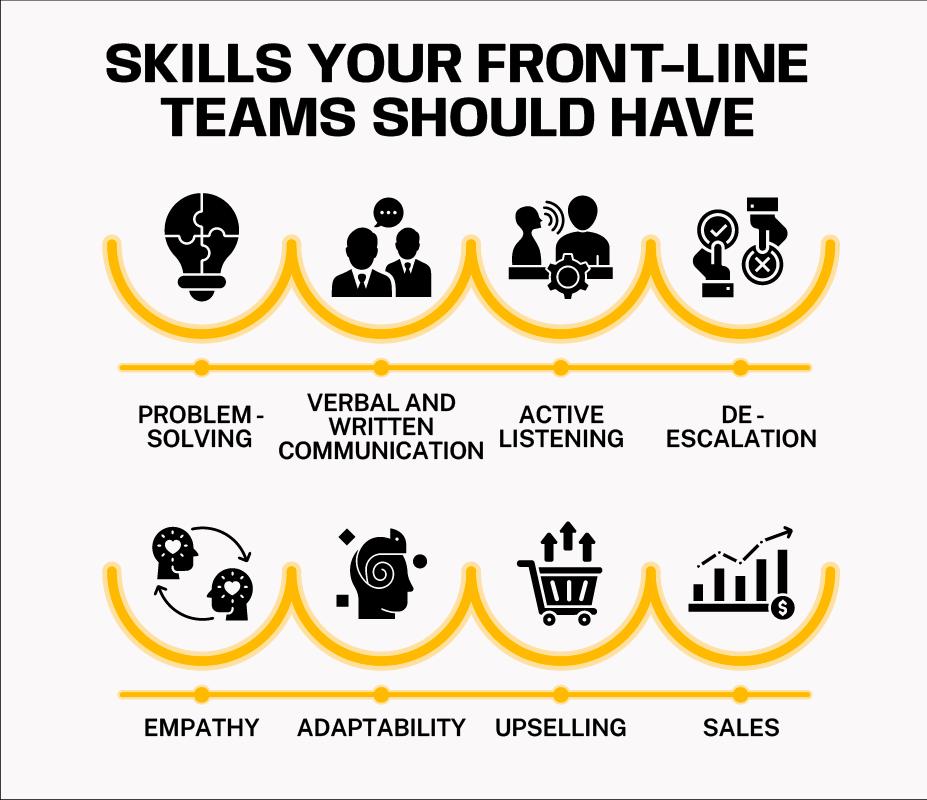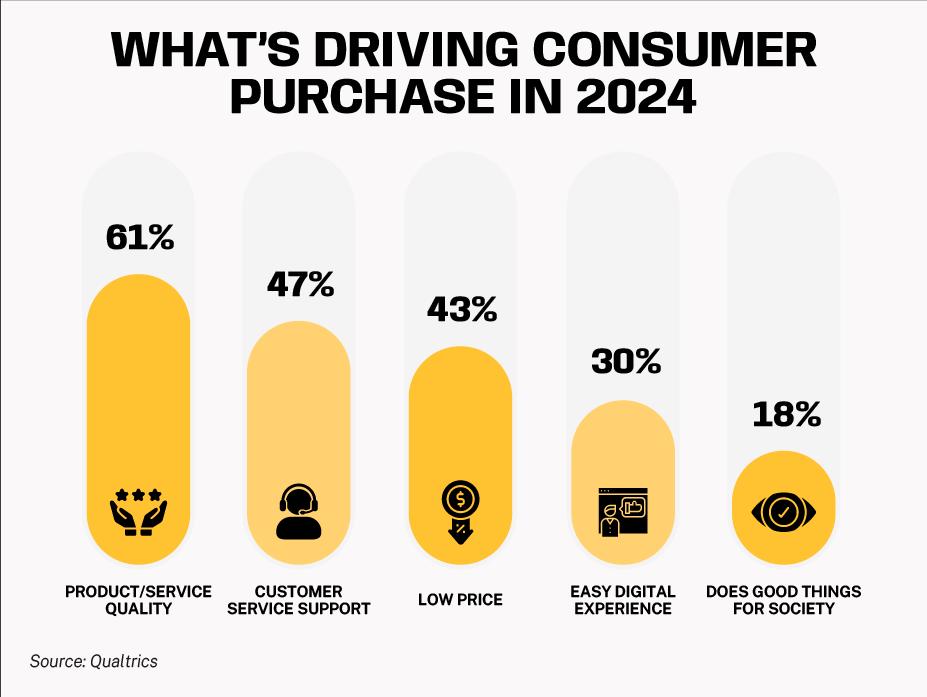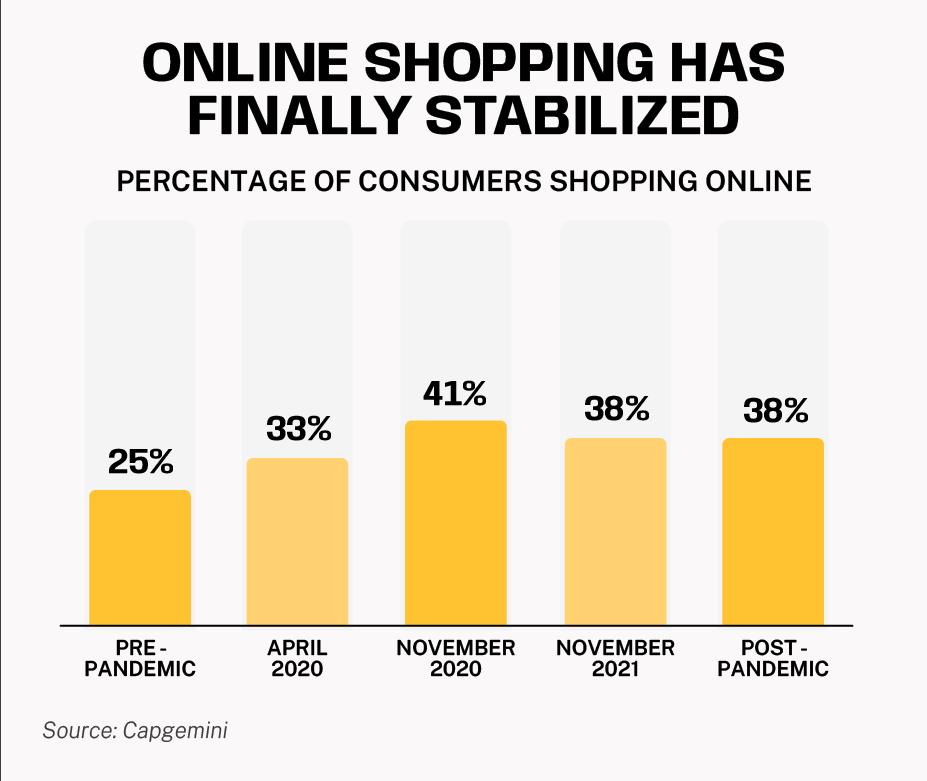
How Business Intelligence Tools are Reshaping the Telecom Industry
Explore the power and importance of telecom business intelligence and how it fuels innovation, efficiency, and strategic data-driven decision-making.
15 MIN


By: TEAM International | July 8, 2024 | 15 min
Ah, the mind of the consumer...
In this fast-moving world, it has become an increasingly fickle and mercurial thing, quick to change, impossible to pin down, and always keen to recall a bad experience.
This kaleidoscopic behavior, where trends and preferences are perpetually shifting, means businesses must spend a great deal of time and effort to understand the people they wish to reach with their products and services. Those who can chart a path through the flux come out poised to conquer the market. But the ones who are content to merely ride the wave? Not so much.
In the world of consumer behavior, the one thing that stays the same is the importance of staying on top of these trends.
So, what do you say? Want to update your consumer strategy? If so, join us as we break down five of the latest findings you can’t afford to miss!
While consumption patterns often change, CX experts have identified certain core elements of the optimal consumer experience. Among these is the simple desire to be seen and to feel like your concerns are known and understood.
This desire is a primary reason consumers prefer interacting with people over AI chatbots. Humans, at least for now, are much better at understanding all the slight nuances that may come up in a customer’s journey.
The mandate for businesses becomes clear: connect with your customers.
It doesn’t mean that you shouldn’t use AI assistants—not in the slightest. Instead, there are plenty of other ways to attack this objective. The most optimal and often overlooked tactic is simply to empower the front-line teams that deal with customers every day, whether that’s retail employees, remote sales reps, or anything in between.
Businesses should pursue projects that help their customer-facing teams deliver consistently positive interactions. For instance, one possible strategy could be to embed analytics experts into these teams to figure out what behaviors impact customer satisfaction the most. Another worthwhile alternative could be introducing data collection methods into these teams for deeper customer understanding. After all, those closest to the data (the customer’s needs and wants) are better suited to collecting it.
Ultimately, it’s all about giving the customer what they want, and right now, there’s a heavy premium on human interaction that understands them.

Artificial intelligence is all the rage right now, and it seems many businesses are rushing to roll out cognitive chatbots to cut customer support costs and save money. We’re here to tell you that’s a horrible idea.
The 2024 Qualtrics Consumer Report makes two things very clear regarding AI. Its quick and efficient nature makes it the preferred choice for handling simple customer-related tasks like receiving a status update. However, when it comes to complex tasks like disputing a charge or troubleshooting an issue, customers still want human interaction.
And is it really that hard to see why? Surely, all of us at some point have experienced the hell that is dealing with a clueless chatbot that’s unable to understand our specific situation. As enterprise AI implementation makes steady progress, consumers are worried that this will become the future of customer support.
These heightened concerns surrounding artificial intelligence mean a single negative AI-related experience is enough for a potential customer to leave your brand and never return. Businesses must be exceedingly careful when rolling out customer-facing AI, especially those meant to enhance overall CX and solve specific problems.
It’s natural to think that amid persistent inflation and an uncertain economic landscape, low prices would be the dominant factor driving consumer behavior, but one would be wrong. According to Qualtrics, customer support still beats out low prices.
One possible factor driving this trend is the dominance of subscription and as-a-service models in everything from TV to video games to software. As customers choose to commit themselves to these platforms, it becomes crucial for them that high-quality customer support is also a part of the package.
This trend should also be understood in light of the number one factor driving consumption, which is product/service quality. Consumers inherently understand that low prices and quality are inversely correlated, so if they must choose, they would rather go with something pricier but worth it. However, if they are going to spend a considerable chunk of their money, they want to know that customer support will be there to back them up should something happen.
As such, businesses should focus on improving the quality of their customer service. In troubled economic times, a reputation for stellar customer satisfaction might just make the difference.

There is a lot of research out there showing how consumers today would rather support brands and companies that align with their personal values. What’s less understood, however, is the downsides that leaning into these trends can have for your business.
The big story here is Bud Light’s disastrous Dylan Mulvaney marketing campaign, which resulted in millions of dollars in lost revenue. As analysts have noted, Bud Light’s attempts to portray a progressive self-image alienated a significant portion of its consumers, who then decided to boycott the brand.
So, what’s the lesson here for other business owners? There’s a difference between value-based marketing and inserting yourself into something as chaotic and unpredictable as the culture wars.
Also, apart from the pitfalls of politicizing your brand, there’s the danger of consumer cynicism. According to the reports, consumers increasingly look upon the corporate world with great skepticism. For instance, only 34 percent of brands are seen as being transparent about their commitments and promises, and just 39 percent are seen as trustworthy in North America.
In other words, coming out with a value-based corporate image is not a guaranteed way to connect with consumers. In fact, in certain cases, it may even backfire, especially if people see it as a self-serving move.
Customers today are no longer satisfied with a one-size-fits-all approach. They crave experiences that cater to their specific needs and wants. A confluence of factors drives this trend toward personalization, and businesses that ignore it risk falling behind.
One key driver is the rise of data-driven insights. Companies like Oura Health, with their personalized sleep and health tracking rings, are just one example. They leverage user data to tailor recommendations and services, creating a more meaningful connection with their customers.
Artificial intelligence plays a crucial role in this personalization revolution thanks to its ability to analyze vast amounts of data, identify customer preferences, and predict future needs. It can also power virtual assistants that guide customers through their journey, overcoming the challenge of cluttered user experiences (UX) that can lead to bad customer experiences (CX). However, there’s a fine line to tread. While AI excels at handling repetitive tasks, complex issues still require the human touch. Businesses must ensure AI implementation enhances, not hinders, CX.
Another critical aspect is data protection. As companies collect more customer data, concerns about privacy and security rise. Building trust is paramount. Customers need to feel confident that you use their information responsibly and ethically.
But here’s the beauty of personalization: it doesn’t have to be complex. Take AI-driven product recommendations on e-commerce platforms. While consumers might be wary of AI in general, they appreciate its ability to work behind the scenes, suggesting products relevant to their interests. This is a powerful testament to the effectiveness of subtle personalization.
The future belongs to businesses that embrace personalization. By leveraging data, AI, and a commitment to customer privacy, companies can create experiences that resonate with their audience, fostering loyalty and driving growth.

The days of bombarding customers with generic marketing messages are over. Modern consumers are discerning, value-driven, yet incredibly skeptical. They expect brands to understand their needs, respect their privacy, and offer personalized experiences. Simply put, you must earn their trust.

How Business Intelligence Tools are Reshaping the Telecom Industry
Explore the power and importance of telecom business intelligence and how it fuels innovation, efficiency, and strategic data-driven decision-making.
15 MIN

AI and Cybersecurity: Automating Incident Response Processes to Minimize Downtime and Damage
As technology rapidly evolves, cyber threats become increasingly sophisticated. Discover how AI enhances incident response, accelerates threat detection, and minimizes damage.
15 MIN

How Mobile Apps Can Improve Customer Service in the Banking Industry
Discover how BFSI companies have been adapting to clients constantly evolving needs and why a customer-centric approach is the next big move for this industry.
18 MIN